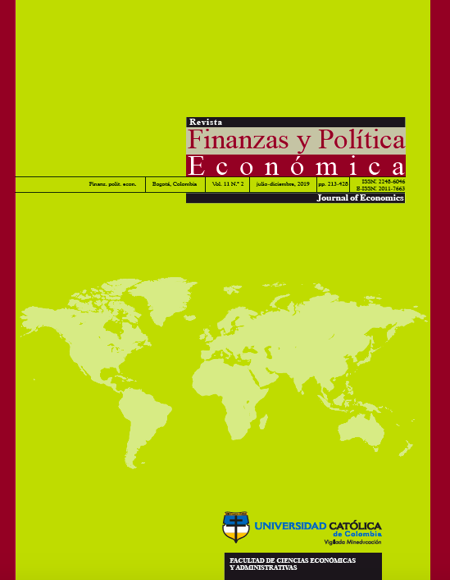
This work is licensed under a Creative Commons Attribution-NonCommercial-ShareAlike 4.0 International License.
This journal is licensed by a Creative Commons Attribution License (CC BY-NC-SA 4.0) Attribution-Non Commercial 4.0 International. For the CC licenses, the principle isthe creative freedom. This system complements the copyright without opposing it, conscious of its importance in our culture. The content of the articles is the responsibility of each author, and does not compromise in any way, to the journal or the university. It allows the transmission and reproduction of titles, abstracts and full content, with academic, scientific, cultural ends, provided acknowledgment of the respective source. This work cannot be used for commercial purposes.
They journal does not charge authors for submission or publication.
Abstract
Las aproximaciones científicas desde puntos de vista multidisciplinares y heterodoxos, han permitido replantear los paradigmas impuestos por las perspectivas teóricas más ortodoxas, las cuales en el último siglo han venido siendo puestas a prueba por la evidencia empírica, permitiendo el desarrollo de nuevas teorías y métodos dentro de las ciencias económicas.
Keywords

References
Ashraf, N., Camerer, C. F., & Loewenstein, G. (2005). Adam Smith, behavioral economist. Journal of Economic Perspectives, 19(3), 131–145. https://doi.org/10.1257/089533005774357897
Ceña Cervantes, J. L. (1976). EL ORDEN NATURAL SMITHrANO YLA PLANIFICACION. Problemas Del Desarrollo, 7(28), 119–133. https://doi.org/10.22201/iiec.20078951e.1976.28.41891
Kahneman, D., & Tversky, A. (1979). Prospect Theory: An Analysis of Decision under Risk. Econometrica, 47(2), 263–291. Retrieved from http://www.jstor.org/stable/1914185
Simon, H. A. (1955). A behavioral model of rational choice. Quarterly Journal of Economics, 69, 99–118. https://doi.org/10.2307/1884852
Thaler, R. H. (2016). Behavioral economics: Past, present, and future. Revista de Economia Institucional, 106(7), 1577–1600. https://doi.org/10.1257/aer.106.7.1577
Thaler, R. H. (2018). From cashews to nudges: The evolution of behavioral economics. American Economic Review, 108(6), 1265–1287. https://doi.org/10.1257/aer.108.6.1265
Tversky, A., & Kahneman, D. (1974). The inference of intentions from moves in the Prisoner’s Dilemma game. Science, 185(4157), 1124–1131. https://doi.org/10.1126/science.185.4157.1124
Tversky, A., & Kahneman, D. (1981). The Framing of Decisons and the Psychology of Choice. Science, 211(4481), 453–458. https://doi.org/10.1126/science.7455683






























